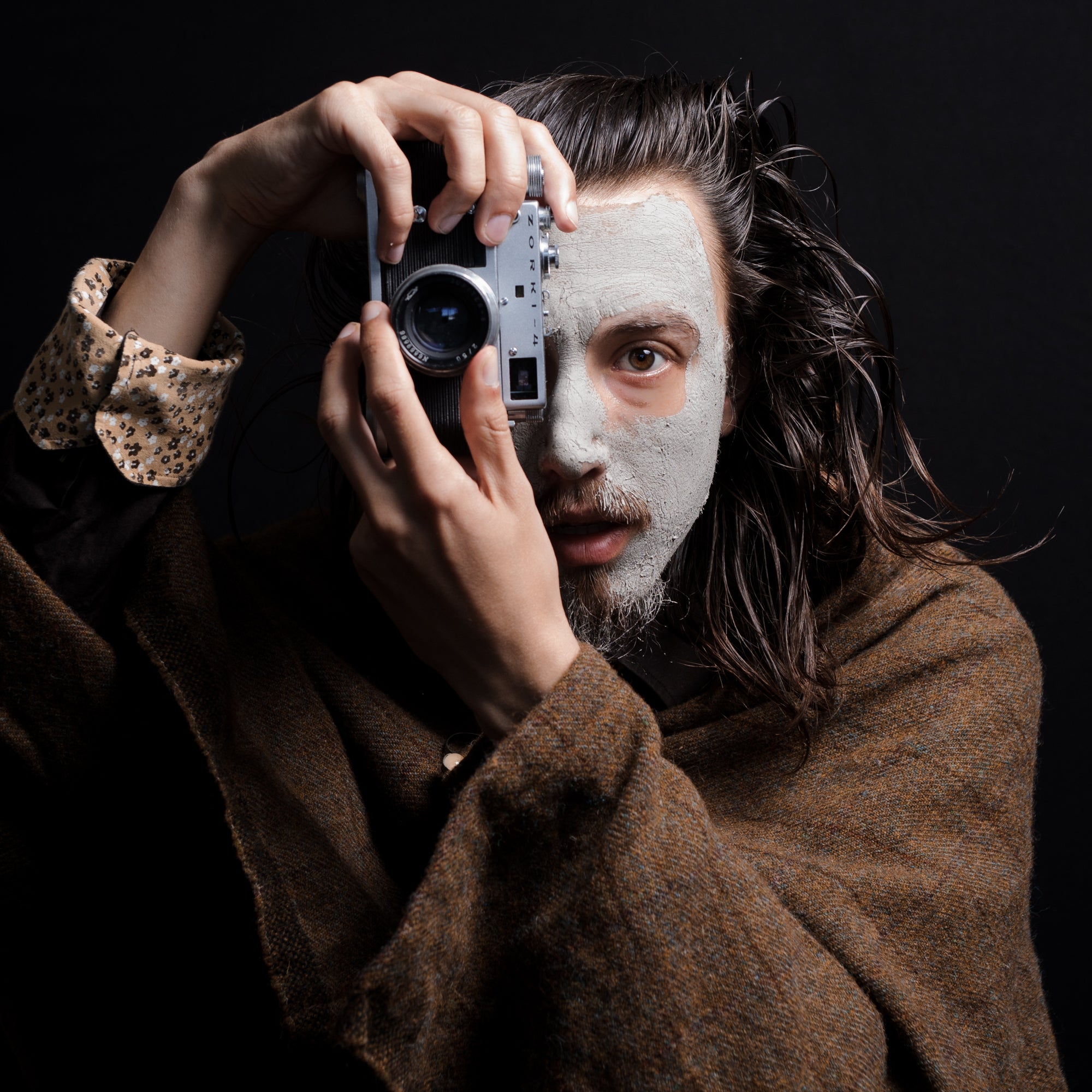ABOUT
Mari Michel was founded in 2020 by Mari Michelson. Guided by the sense of beauty embedded in natural materials and with a mindset aimed towards sustainability, an idea emerged - to use silk from second hand mens ties.
We rescue this premium material and turn it into Fair Hair Ties.
Silk is the strongest natural fibre and one of the most luxurious, coveted fabrics in the world. The proteins in silk have enormous benefits for the human body, and are now widely used for medicinal and cosmetic purposes. Learn more about the properties of silk here.
Sustainability is an underlying value in everything we do. At Mari Michel, we don’t only consider environmental sustainability, but include all of the four pillars of sustainability: Human, Social, Economic & Environmental. Learn more about it here.

Who is Mari?
“From an early age, I have found tremendous joy in expressing myself through clothing.”
As a kid you could see her wearing a turtle-neck with a spaghetti-strap top layered over, it combined with embroidered jeans, with one leg cut short from knee-length - all of that peculiarity standing confident on white rubber platform shoes. During her teenage years, you could pass her on the street sporting a
deep red velvet price costume with an old suitcase in-hand (a depiction of Jimi Hendrix painted on it with acrylics).
“I remember waiting in the bus stop to catch my bus home from high school & a small girl with much astonishment in her eyes, raised a hand to point at me while saying to her dad: “Look, dad, it’s a prince!”
Mari was born in a post-Soviet country, just 4 years after regaining independence. Schools and other institutions needed time to gradually adjust to their newly-found sense of freedom. Everybody in Estonia was breathing that in & Mari was part of the first generation that could fully immerse herself in it’s expression.
When she turned 16, she moved to England to study fashion.
“I had never been to England before, nor had I been alone on a plane. Everything about England was calling me in – the style, the music, the art, the movies, the old architecture & an abundance of people from different cultures living together – I was set on chasing my dream.
I came from a place that is very sensitive towards their natural environment and has integrated a variety of beliefs into its cultural fabric, showing respect towards nature in many different areas. My understanding of creating apparel was deeply aligned with these values, and the collections I had made as a hobby a few years prior, were all recycling, rescue or upcycling projects.”
“In England, a harsh reality hit me – in order to survive in the field as a successful designer, I was expected to make new designs more than seasonally that were all mass produced in low labour cost countries, and disregarded just a short while later. I had trouble placing my “small production” attitude from a small country. After seeing the London Fashion Week for the first time, I was completely disillusioned.”
After fashion studies she moved to Finland & a while after, started travelling.
"With my eyes open, I had an urge to see the world and meet people who live alternatively. I backpacked through Europe to find sustainable initiatives, volunteer in permaculture farms & meet passionate people.”
“After travels, in 2016, I met Levien – my partner and muse in life. We were both looking to build up something meaningful & live closer to nature. With both of us being city people, we turned away from the main road and moved to the countryside in South Estonia, into the middle of swamps, woods and fresh water springs, far away from the city. Our garden was often visited by deer, beavers, foxes and once even a lynx. We tasted the everlasting flow of inspiration in the silence of nature and learned new ‘forgotten’ crafts, like smithing, basket making, felting, embroidering and woodwork.”
“One day, in the local thrift store, I found many precious materials that nobody bought and plotted a way to put them in effective use. It was a disregarded abundance – silk, cotton, linen, wool and fur. A thought emerged to use men’s silk ties for new clothing and accessories design.”
“In 2019, life brought us to Levien’s motherland – the Netherlands. I was still working in software and observing how the fashion industry had been changing in the Lowlands. I also noticed that people are more environmentally conscious and less taken aback when it comes to reusing items. I gained the confidence to go for my passion on my own terms.”

Partners in crime
Levien is the photographer, brand-marketeer and marketing mind behind Mari Michel. With a multimedia capability, he constantly experiments with collage making, graphic design and photography to bring across new outrageous campaign ideas.
Levien’s provocative sense of humour, creative thinking and witty writing comes out in much of our brand expression.
His style is authentic and being inspired by Mari, he has grown fond of apparel design himself.
When you see him on the street, you can easily recognise him easily by a golden leaf pinned onto his dark grey cashmere flat cap, boasting a colourful collar shirt and signature camel chinos.
Interested in more photography? levienlockefeer.nl
Any questions? Contact us here
